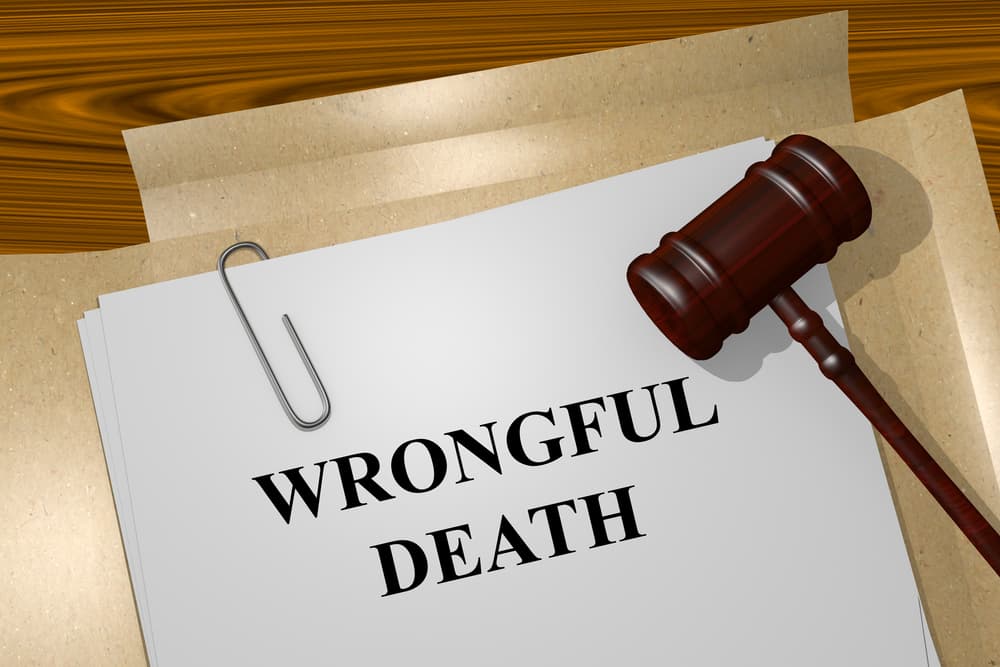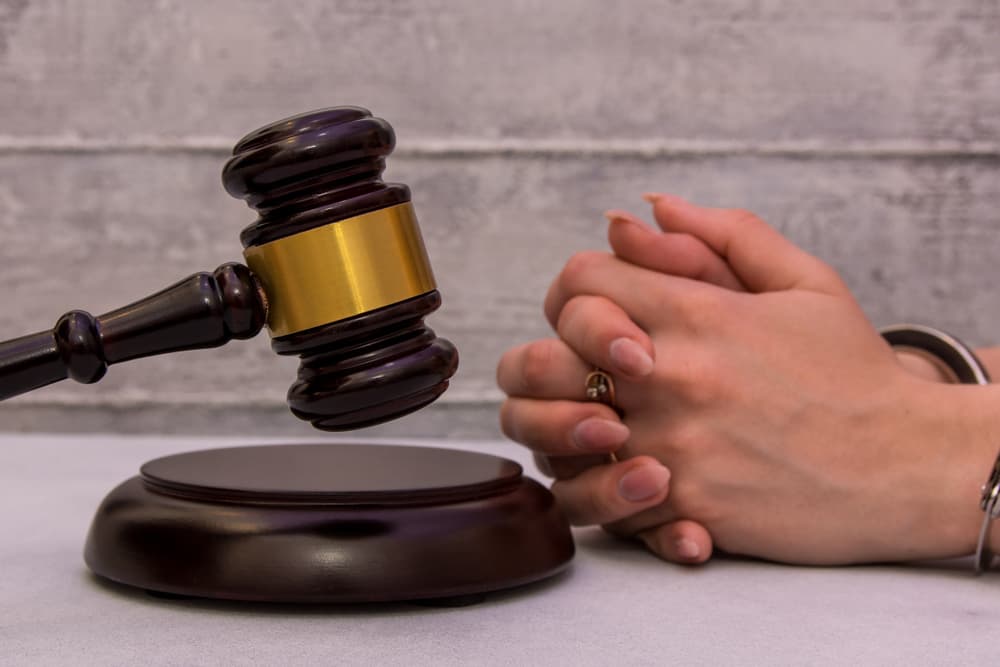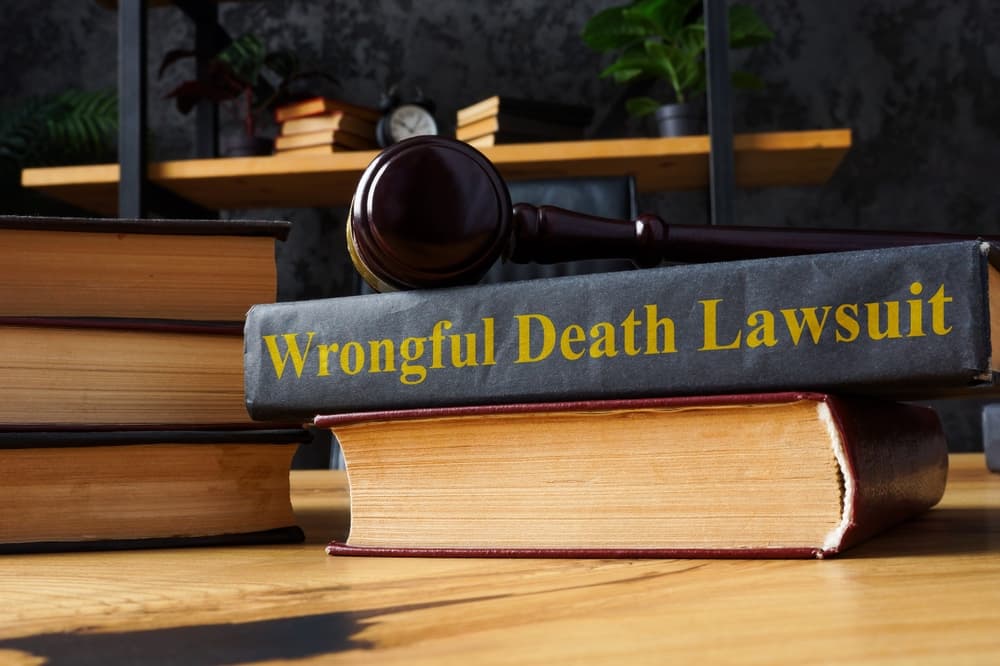The loss of a loved one is undeniably one of the most heart-wrenching situations you can experience in life. The pain of seeing someone you love can be unbearable, especially when you realize that your loved one may have lived had someone else taken precautions and acted appropriately. The law recognizes that family members of the deceased are deprived of love, companionship, and financial support due to the loss of their loved one and allows them to pursue a wrongful death claim for compensation.
If you want to know whether or not you have grounds for legal action, talk to a wrongful death lawyer to understand the legal course that may be available to you.
What Constitutes Wrongful Death?

Wrongful death claims arise when the negligent or intentional actions of another person or entity cause someone’s death. Understanding what constitutes wrongful death is crucial for those considering filing such a claim.
Negligence
Negligence-based wrongful death cases occur when a person dies due to another individual’s failure to exercise reasonable care. This lack of care means that the responsible party did not act as a reasonable person under similar circumstances. For example, if a driver runs a red light and fatally injures another person in a car accident, this behavior can be deemed negligent. The key to proving negligence is establishing that the defendant owed a duty of care to the deceased, breached that duty, and directly caused the death as a result.
Criminal Conduct
Some wrongful death cases arise from intentional violence or other criminal conduct, such as drunk driving or manslaughter. When this happens, a criminal case will occur separately from a civil wrongful death claim.
Negligence most often sets the foundation for wrongful death claims. If you are a surviving family member of someone who died and are not sure whether or not you are eligible to sue another individual or entity for your loved one’s death, you might want to consult with a wrongful death lawyer.
Common Types of Wrongful Death Cases
Wrongful death claims can arise from any type of accident or incident that results in someone’s death, including:
- Car accidents. Car accidents are among the most common causes of wrongful death claims, with statistics showing that motor vehicle accidents in the U.S. cause more than 40,000 deaths annually. When another driver’s reckless or negligent behavior leads to a fatal accident, surviving family members may have grounds to file a wrongful death suit.
- Motorcycle collisions are particularly deadly due to the lack of physical protection for riders. These accidents often result from drivers failing to see motorcyclists, making unsafe lane changes, or engaging in distracted driving.
- Truck crashes. Truck crashes often lead to catastrophic outcomes when trucks collide with smaller vehicles. Wrongful death claims in truck crash cases may involve multiple parties, including the truck driver, the trucking company, and manufacturers of faulty truck parts.
- Pedestrian accidents. Pedestrian accidents frequently result in life-threatening injuries or fatalities, especially in urban areas with high traffic volumes. Drivers who fail to yield, run red lights, or drive recklessly in pedestrian zones can be held liable for wrongful deaths.
- Bicycle crashes. Bicyclists are often at risk of suffering fatal injuries when drivers do not share the road responsibly. Establishing fault in these cases usually involves proving that the driver’s actions directly led to the cyclist’s death.
- Uber and Lyft collisions. When an Uber or Lyft driver is involved in a fatal collision, factors like whether the driver was working at the time of the accident can complicate liability. In these cases, wrongful death claims may target not only the driver but also the ride-sharing company, depending on the circumstances and insurance policies involved.
If your loved one lost his or her life in any of these or other types of incidents, you might want to contact a wrongful death attorney to determine whether or not you have a case and discuss your next steps.
What’s the Difference Between Wrongful Death Proceedings and Criminal Proceedings?

Understanding the distinction between wrongful death proceedings and criminal proceedings is essential for anyone considering filing a wrongful death claim. Although both legal actions can arise from the same incident, they serve different purposes and follow separate legal processes.
Purpose and Outcomes
The primary purpose of wrongful death proceedings is to provide financial compensation to the deceased’s surviving family members. These civil lawsuits aim to cover various damages, including funeral expenses, medical bills, lost income, and the emotional suffering caused by the loss of a loved one. The outcome of a wrongful death lawsuit is typically a monetary settlement or a court-ordered judgment for the plaintiffs (surviving family members of the deceased).
In contrast, criminal proceedings focus on punishing the defendant for violating criminal laws. The state, represented by a prosecutor, brings charges against the accused. The primary goal is to seek justice on behalf of society by imposing penalties such as imprisonment, fines, or community service. The outcome of a criminal case does not directly compensate the victim’s family, although some cases may order restitution.
Burden of Proof
Another key difference between wrongful death and criminal proceedings is the burden of proof. In a criminal case, the prosecution must prove the defendant’s guilt “beyond a reasonable doubt,” which is a high standard of proof. This stringent requirement ensures no reasonable uncertainty regarding the defendant’s guilt.
In wrongful death cases, the burden of proof is lower. Plaintiffs must establish their claims based on a “preponderance of the evidence,” meaning it is more likely than not that the defendant’s actions caused the death. This lower standard makes it possible for a defendant to be acquitted in a criminal trial but still be found liable in a separate wrongful death lawsuit. This scenario is not uncommon.
Legal Proceedings
Wrongful death lawsuits are civil cases filed by the deceased’s estate or surviving family members. The process involves gathering evidence, filing a complaint, conducting discovery, and potentially going to trial. The focus is on demonstrating how the defendant’s actions resulted in the wrongful death and quantifying the damages.
On the other hand, criminal proceedings begin with an investigation by law enforcement and the filing of charges by the prosecutor. The defendant then faces prosecution, and the case progresses through pre-trial motions, plea negotiations, and potentially a trial. The prosecution must present evidence and witness testimony to prove the defendant’s guilt, while the defense works to challenge the evidence and create reasonable doubt.
Possible Concurrent Cases
It’s important to note that wrongful death and criminal proceedings can occur concurrently or sequentially. For instance, if authorities charge a driver with vehicular manslaughter for causing a fatal accident, the deceased’s family can simultaneously file a wrongful death claim. The outcome of a criminal case does not necessarily determine the result of a civil lawsuit, and vice versa.
Who Can File a Wrongful Death Lawsuit?

State law dictates the right to file a wrongful death lawsuit. In Georgia, for example, this right is limited to individuals closely related to the deceased under Georgia Code § 51-4-2. Here’s a breakdown of who is eligible:
- The surviving spouse. The surviving spouse is the first in line to file a wrongful death lawsuit. If the deceased was married at their death, their spouse has the primary right to bring the claim. Moreover, the spouse must also represent the interests of the couple’s minor children, sharing any compensation awarded.
- The children. If there is no surviving spouse, the right to file a wrongful death lawsuit passes to the deceased’s children. Adult children, as well as minors, are eligible to file the claim. It’s worth noting that the court may appoint a guardian ad litem to represent the interests of minor children in such cases.
- The parents. If the deceased was unmarried and had no children, the right to file a wrongful death lawsuit will generally fall to the parents. Both parents are eligible to file the claim, and they can do so individually or jointly, depending on their circumstances.
- The personal representative of the estate. In cases where there are no surviving spouse, children, or parents, the personal representative of the deceased’s estate has the right to file a wrongful death lawsuit. The personal representative is usually named in the deceased’s will or appointed by the court if no will exists. Any compensation awarded in such cases is held in trust for the benefit of the estate and distributed according to the deceased’s will or state intestacy laws.
If you have any questions about your right to sue for your loved one’s death, you might want to schedule a consultation with a wrongful death attorney.
How Long Do You Have to File a Wrongful Death Claim?

The time limit for filing a wrongful death claim—or any other type of claim in tort law—is known as the “statute of limitations.” The statute of limitations is a law that sets the maximum time after an event where eligible individuals may initiate legal proceedings. Regardless of its merits, filing the claim is no longer possible when this deadline expires.
The statute of limitations for wrongful death claims can vary significantly depending on the jurisdiction and the case’s specifics. In Georgia, the statute of limitations for filing a wrongful death claim is generally two years from the date of the deceased person’s death. This means that family members or representatives of the deceased must file the claim within this two-year window. Failure to do so may permanently bar the claim.
However, it’s important to note that the clock starts ticking from the date of death, not the date of the incident that caused it. While the general rule in Georgia is a two-year statute of limitations, several exceptions can extend or toll this period. These exceptions include:
- Discovery rule. If the cause of death was not immediately apparent, the statute of limitations might commence when the cause of death becomes or should have become known.
- Criminal proceedings. If the death resulted from actions that led to criminal charges, the statute of limitations might toll until authorities resolve the criminal case. This pause ensures that the civil case does not interfere with criminal proceedings.
- Minors. If the claimants are minors, the statute of limitations may toll until they reach the age of majority. This exception ensures that minors can seek justice once they become legally capable.
- Incapacity. If the claimant is mentally incapacitated, the statute of limitations may take until they can file a claim.
These exceptions highlight the complexity of wrongful death statutes and underscore the importance of consulting with a wrongful death lawyer.
How Can a Lawyer Help if You’re Thinking of Filing a Wrongful Death Claim?
If you have recently lost your loved one and think someone else’s negligence can cause their death, you might have two questions in your mind, “Do I have a wrongful death case?” and “Will I win if I file a lawsuit?” You might need to contact a lawyer to get answers to these (and other) questions. There are many ways a wrongful death attorney can support you.
Identifying the Cause of Action and Statute of Limitations
One of the first steps in filing a wrongful death claim is identifying the legal cause of action. A lawyer can help determine whether your case qualifies as wrongful death and explain how much time you have to initiate legal action. If too much time has passed, your attorney can identify ways to extend or toll the statute of limitations.
Preserving Evidence
In a wrongful death case, evidence may include:
- The decedent’s medical records.
- Statements of witnesses who saw how the fatal incident happened.
- Police reports.
- Professional testimonies.
Your wrongful death attorney will guide you through collecting documents, interviewing witnesses, and ensuring the other party does not overlook, mishandle, or tamper with any crucial evidence.
Proving the Elements of Negligence or Malpractice
Proving negligence or malpractice involves demonstrating that the defendant owed a duty of care, breached that duty, and caused the death. This requires a thorough understanding of both legal principles and the specific circumstances of your case. Lawyers have access to networks of professionals, such as medical professionals or accident reconstruction specialists, who can provide compelling testimony to establish the defendant’s liability.
Identifying and Documenting the Recoverable Damages
In a wrongful death claim, you may seek various damages, including economic ones (e.g., lost income, medical expenses) and non-economic (e.g., pain and suffering, loss of companionship). A wrongful death attorney can accurately calculate the full range of damages you’re entitled to, ensuring that no aspect of your loss is undervalued or overlooked.
Negotiating with the Insurance Company and the Defendant
Negotiating with insurance companies or the defendant can be challenging and emotionally draining. Insurance companies often want to minimize payouts, and without legal representation, you may find it difficult to settle your case for a fair amount. A lawyer on your side can effectively communicate your needs, counter lowball offers, and negotiate for the maximum compensation you deserve.
Preparing Your Case for Trial
While many wrongful death claims settle out of court, some cases require litigation. If negotiations fail, your lawyer will be ready to take your case to trial. Macon personal injury lawyers meticulously prepare for trial by gathering the necessary evidence, developing a compelling narrative, submitting documents, and preparing witnesses. They will represent you in court, presenting your case to the judge and jury as persuasively as possible.
